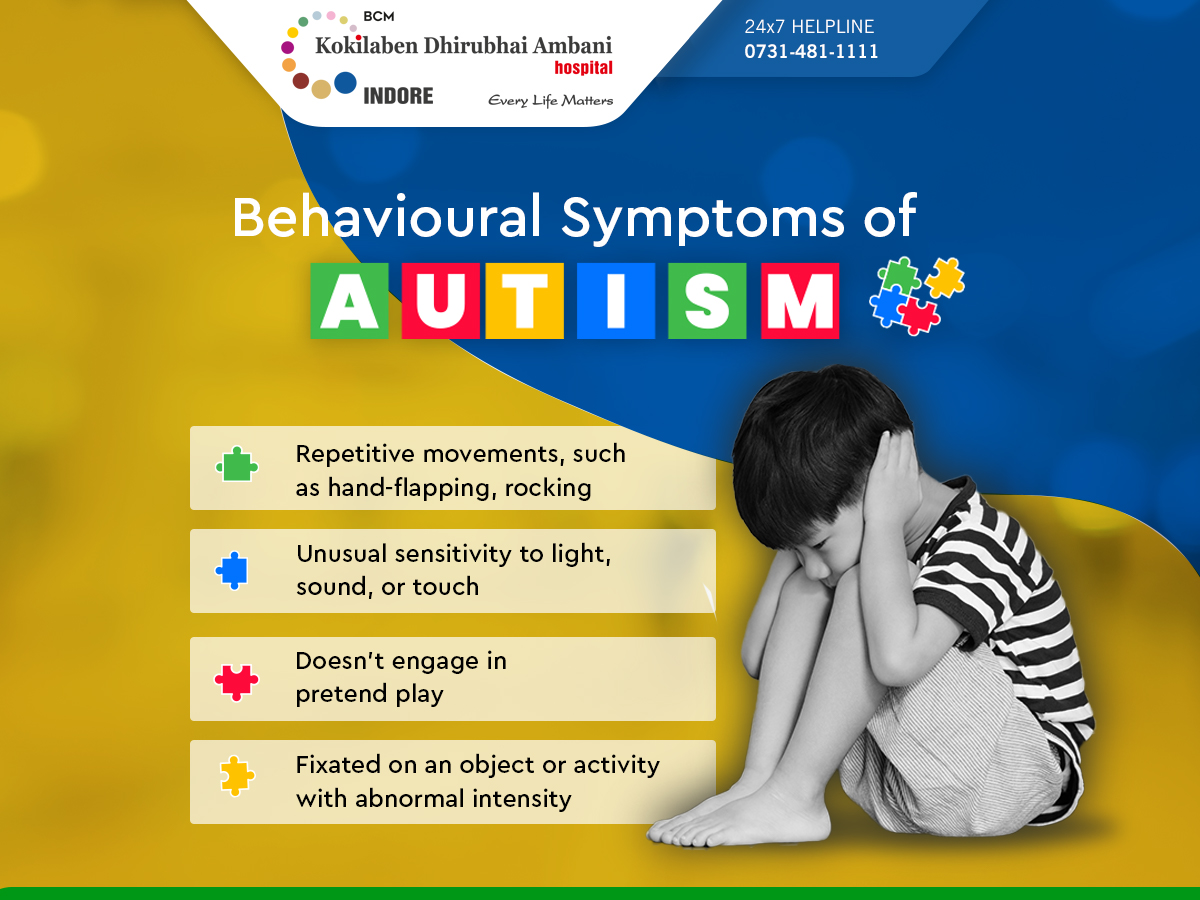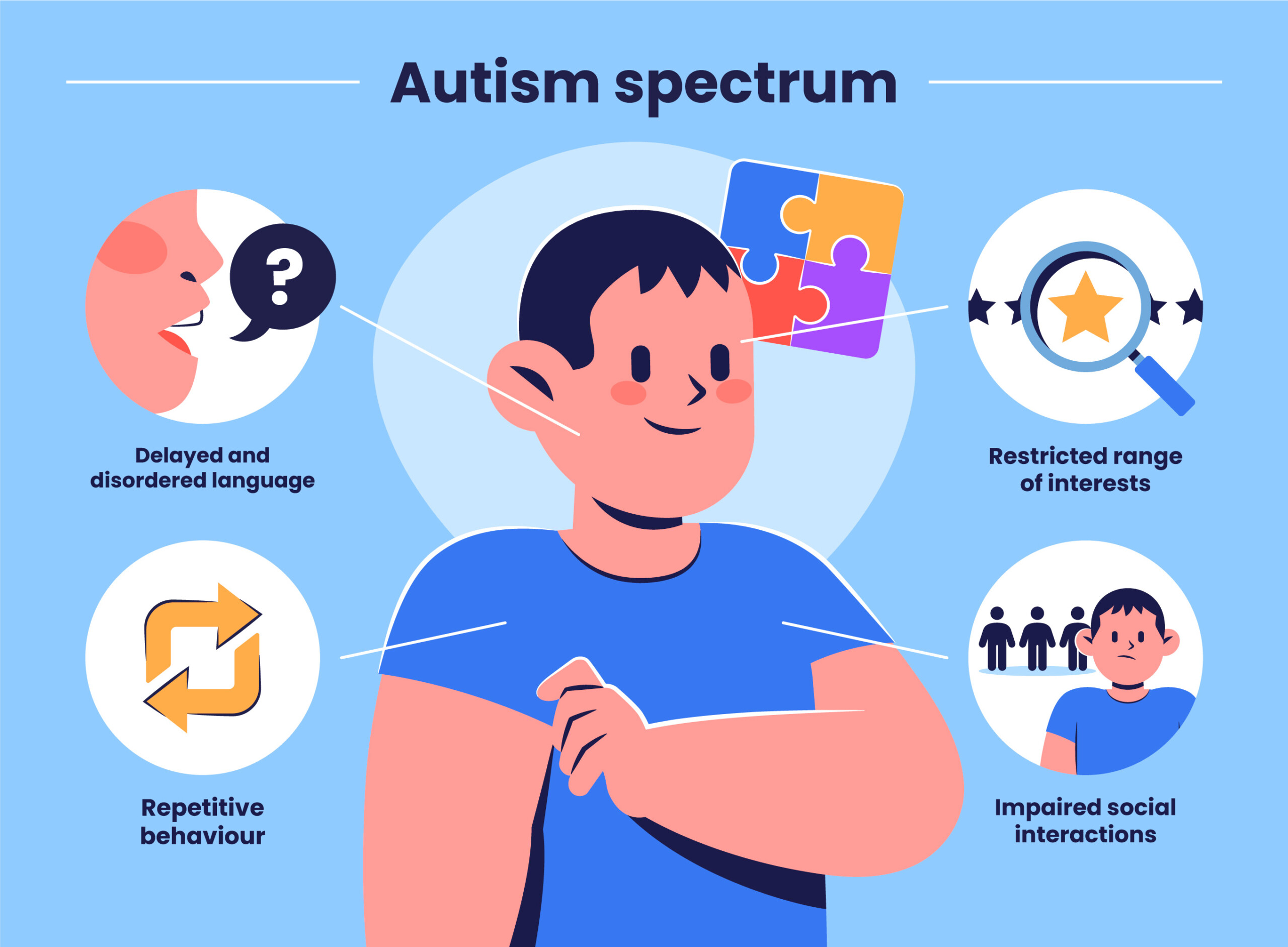Exploring Efficient Techniques for Supporting People With Behavior Autism
Sustaining individuals with behavior autism calls for a nuanced understanding of their distinct requirements. What particular methods can you implement to assure these people flourish?
Understanding Behavior Autism: Secret Features and Challenges
When you begin to comprehend behavior autism, you'll see a number of crucial qualities and challenges that define the experience for people. Lots of people with behavior autism frequently deal with communication, making it hard for them to share their demands or emotions effectively. You might observe recurring actions, such as hand-flapping or shaking, which function as coping mechanisms for managing anxiety or sensory overload. Social interactions might be challenging; individuals may find it tough to review social cues, bring about misunderstandings in partnerships.
In addition, sensory sensitivities prevail, triggering discomfort in settings with loud noises or brilliant lights. These obstacles can lead to stress and anxiety or stress, impacting every day life. It is necessary to acknowledge that each person is distinct, and their experiences might differ. Recognizing these attributes enables you to come close to assistance with empathy, cultivating a positive connection that can boost their well-being and motivate growth.
The Value of Personalized Interventions
When it pertains to supporting individuals with behavior autism, customized treatments are essential. By creating tailored treatment strategies that concentrate on private staminas, you can substantially enhance their development. Teaming up with support groups guarantees every person is straightened in giving the most effective treatment possible.
Tailored Intervention Strategies
Creating customized intervention plans is vital for successfully supporting individuals with behavior autism, as each individual's challenges, toughness, and needs differ considerably. Beginning by gathering thorough information regarding the individual, including their preferences, sets off, and past experiences. This adaptability not just fosters interaction however additionally advertises a sense of possession and empowerment for the individual.
Private Staminas Assessment
A specific toughness analysis is vital for establishing tailored interventions for people with behavior autism. By concentrating on everyone's special abilities, you can create strategies that resonate with their passions and abilities. This strategy not only improves engagement however additionally enhances self-confidence.
When you determine strengths, like phenomenal memory or imaginative talent, you can tailor treatments that utilize these locations. This not only makes learning more effective but additionally cultivates a feeling of achievement. Remember, every individual has unique capabilities; identifying them empowers you to craft purposeful experiences.
Integrating these strengths right into everyday regimens and restorative methods can cause boosted results. Ultimately, focusing on staminas warranties that interventions are not just effective however additionally enriching for the individual.
Collaborative Assistance Teams
Acknowledging specific strengths establishes the stage for creating joint support teams that concentrate on tailored treatments. By combining experts, relative, and the individuals themselves, you produce a supportive network that tailors methods to fulfill particular requirements. Each employee contributes unique understandings, making sure a complete approach that deals with behavioral obstacles effectively.
You'll find that partnership fosters open interaction, enabling constant comments and modifications. This flexibility is important, as it aids everybody involved stay aligned with the individual's preferences and objectives. Additionally, participating in this team-based method equips people with autism, advertising their self-advocacy and self-confidence. Eventually, personalized treatments developed through collective assistance teams lead to more significant development and a far better high quality of life.
Evidence-Based Communication Methods

When collaborating with people on the autism spectrum, utilizing evidence-based communication methods can substantially enhance their ability to connect and reveal themselves. Making use of aesthetic assistances, like photo schedules or communication boards, assists clear up assumptions and fosters freedom. Streamlining language and making use of concrete terms enables much better understanding, decreasing frustration.
Incorporating social tales can prepare individuals for various scenarios, showing them proper feedbacks and behaviors. Urging the usage of assistive technology, such as speech-generating gadgets, equips people to communicate better. Furthermore, utilizing foreseeable atmospheres and constant routines can supply a sense of protection, making interaction more effective.
Bear in mind to be patient and provide time to process your words. Engaging in energetic listening, where you show their ideas and sensations, can enhance your connection. By implementing these strategies, you'll develop a more helpful interaction atmosphere for individuals with autism.
Creating Encouraging Settings
Developing encouraging settings for individuals with behavior autism starts with implementing structured routines that give predictability and safety. You'll also wish to develop sensory-friendly spaces that cater to individual demands, lowering frustrating stimulations. Furthermore, using positive support methods can encourage desired actions and promote a sense of success.
Structured Regular Application
Establishing an organized routine can considerably improve the atmosphere for individuals with behavior autism. By producing a consistent timetable, read more you offer predictability, which can reduce anxiety and here complication. Start by damaging the day into convenient sections, incorporating tasks like dishes, play, and peaceful time. Use aesthetic schedules or timers to aid them comprehend what comes next. See to it to include opportunities for breaks, as these can help them collect yourself and refocus. It's essential to be versatile; while routines are valuable, adapting to modifications in state of mind or scenarios is important. Urge involvement in developing the routine, so they feel a feeling of ownership and control. A well-structured setting fosters self-reliance and confidence, sustaining their general growth.
Sensory-Friendly Spaces Layout

Positive Support Methods
When you include favorable reinforcement methods into your technique, you can greatly enhance the knowing and behavioral outcomes for people with autism. Beginning by recognizing what encourages the specific-- be it applaud, tokens, or special tasks. You can additionally progressively boost the complexity of tasks as people come to be a lot more comfy, strengthening their progress.
Collaborative Strategies: Functioning With Family Members and Experts

Entailing household participants in decision-making equips them and enhances their capability to sustain their liked ones. Specialists, consisting of specialists and instructors, can supply important resources and training that better assist families.
You must also appreciate each celebration's point of view, recognizing that families recognize their kid finest while experts bring specialized knowledge. By crafting customized strategies together, you create a customized strategy that attends to distinct needs. Autism Therapist. Inevitably, this partnership not only profits the private with autism but additionally enhances the support network bordering them, making it much more reliable and cohesive
Including Social Skills Educating
Building on the solid partnerships developed in between households and specialists, incorporating social here abilities training can substantially improve the support provided to people with behavior autism. This training assists you show necessary interaction skills, such as starting conversations, comprehending non-verbal hints, and reacting suitably in social circumstances.
By making use of organized tasks, role-playing, and real-life situations, you create chances for practice in a risk-free environment. Motivate individuals to get involved in group settings where they can involve with peers, cultivating relationships and improving their convenience in social contexts.
It's important to customize the training to every person's one-of-a-kind toughness and difficulties, guaranteeing they feel confident and qualified. On a regular basis including feedback from both specialists and households can fine-tune these methods, making social skills training more efficient. Inevitably, you're equipping individuals with the tools they need to browse social communications efficiently and construct meaningful partnerships.
Monitoring Progression and Adjusting Approaches
As you apply social abilities training, it's critical to check progress and change methods accordingly. Monitor behaviors, noting improvements and obstacles. Use tools like checklists or graphes to imagine development and determine patterns. Consistently examine your observations to assess what's working and what isn't.
Engage the person in reflection, asking just how they feel concerning their progression and what challenges they encounter. This feedback is invaluable for tailoring your strategy. If specific approaches aren't producing outcomes, do not be reluctant to change them.
Include a variety of methods to maintain the training dynamic and appealing. Collaborate with various other caregivers or experts for fresh viewpoints and insights. Remember, versatility is crucial; what jobs today might not work tomorrow. By remaining attentive and receptive, you create an atmosphere that cultivates development and development. Always commemorate success, despite exactly how tiny, to encourage ongoing initiative and enthusiasm.
Frequently Asked Questions
What Are the Common Misconceptions About Behavioral Autism?
You might believe behavioral autism only impacts interaction, yet it incorporates a lot more. Several think all individuals with autism act the very same, ignoring their distinct qualities and capacities. It's essential to comprehend everyone's distinctions.
Just How Can Modern Technology Help in Supporting Individuals With Behavioral Autism?
Technology can enhance interaction, providing devices like apps for social abilities and actions monitoring. You can use digital truth for immersive experiences, and wearable devices can check emotions, helping you sustain individuals effectively.
What Duty Do Sensory Processing Issues Play in Behavioral Autism?
Sensory handling problems can significantly impact habits. You could see that overwhelming sensory input leads to stress and anxiety or meltdowns. Recognizing these difficulties aids you produce a more helpful environment for individuals experiencing sensory overload.
Exist Specific Dietary Suggestions for Individuals With Behavioral Autism?
Yes, certain nutritional suggestions can aid. You might take into consideration a gluten-free or casein-free diet, which some discover useful (Aba Therapist). Always consult a medical care specialist prior to making substantial adjustments to guarantee it's best for you or your loved ones
Just How Can Peers Be Enlightened to Assistance Individuals With Behavioral Autism?
To educate peers, you can arrange workshops, develop insightful products, and motivate open discussions. Engaging tasks, like role-playing circumstances, assist them understand challenges encountered by people, promoting empathy and reliable assistance within the neighborhood.
Exploring Reliable Approaches for Supporting Individuals With Behavior Autism.
Producing tailored treatment strategies is necessary for effectively sustaining people with behavior autism, as each individual's needs, strengths, and difficulties vary considerably.A specific strengths evaluation is vital for developing tailored treatments for people with behavior autism.To support people with behavior autism, developing sensory-friendly rooms is vital, as it can greatly improve their convenience and focus.Collective strategies are important for supporting people with behavior autism, as they foster a strong collaboration in between specialists and households.